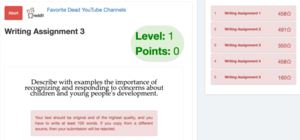Cognitive Prostheses for Goal Achievement
2019
Article
re
Procrastination and impulsivity take a significant toll on people’s lives and the economy at large. Both can result from the misalignment of an action's proximal rewards with its long-term value. Therefore, aligning immediate reward with long-term value could be a way to help people overcome motivational barriers and make better decisions. Previous research has shown that game elements, such as points, levels, and badges, can be used to motivate people and nudge their decisions on serious matters. Here, we develop a new approach to decision support that leveragesartificial intelligence and game elements to restructure challenging sequential decision problems in such a way that it becomes easier for people to take the right course of action. A series of four increasingly more realistic experiments suggests that this approach can enable people to make better decisions faster, procrastinate less, complete their work on time, and waste less time on unimportant tasks. These findings suggest that our method is a promising step towards developing cognitive prostheses that help people achieve their goals by enhancing their motivation and decision-making in everyday life.
| Author(s): | Falk Lieder and Owen X. Chen and Paul M. Krueger and Thomas L. Griffiths |
| Journal: | Nature Human Behavior |
| Volume: | 3 |
| Year: | 2019 |
| Month: | August |
| Department(s): | Rationality Enhancement |
| Research Project(s): |
Computing Optimal Incentive Structures
|
| Bibtex Type: | Article (article) |
| Paper Type: | Journal |
| DOI: | 10.13140/RG.2.2.16279.06564/1 |
| Language: | English |
| State: | Published |
|
BibTex @article{Liederetal2019Prostheses,
title = {Cognitive Prostheses for Goal Achievement},
author = {Lieder, Falk and Chen, Owen X. and Krueger, Paul M. and Griffiths, Thomas L.},
journal = {Nature Human Behavior},
volume = {3},
month = aug,
year = {2019},
doi = {10.13140/RG.2.2.16279.06564/1},
month_numeric = {8}
}
|
|


